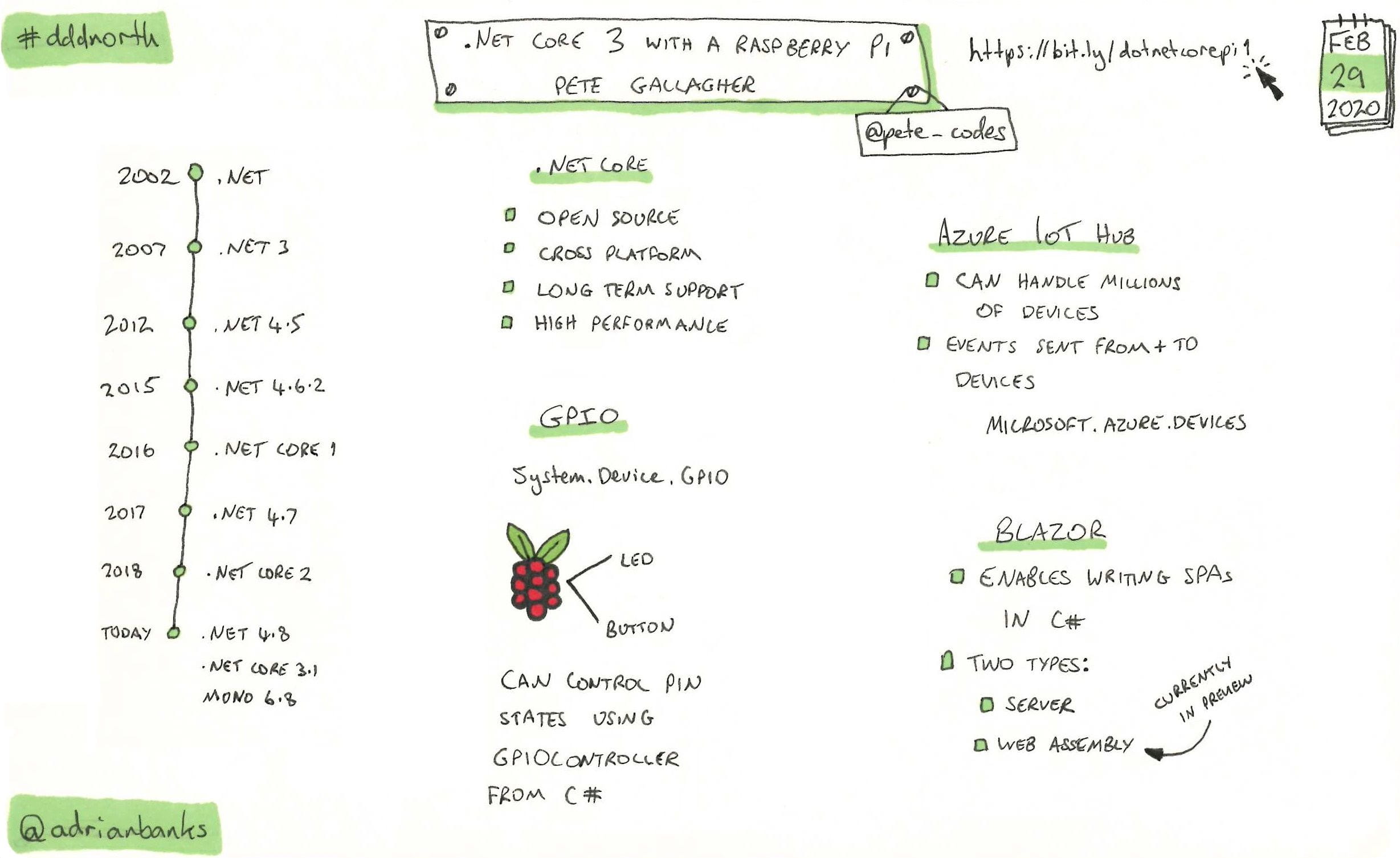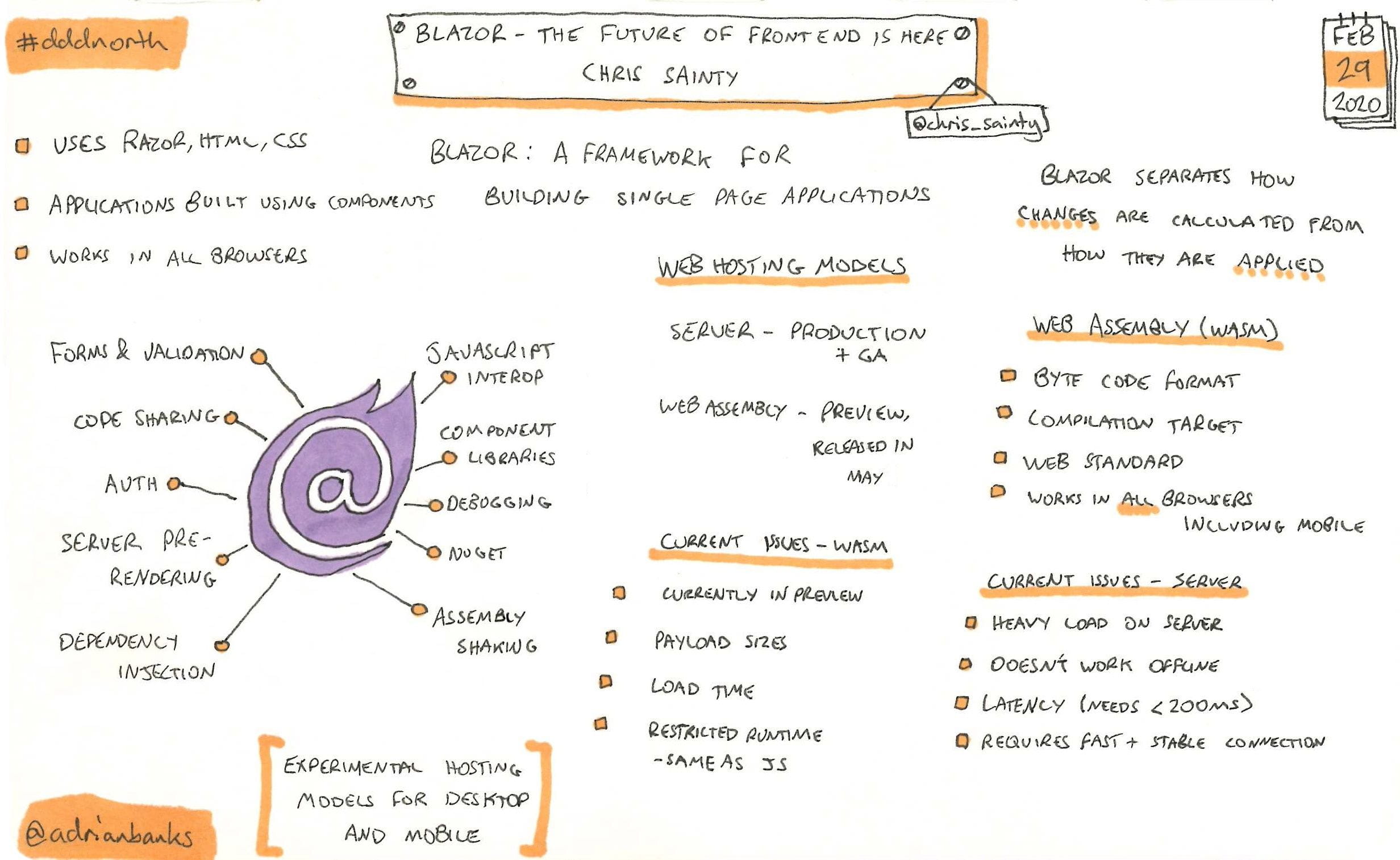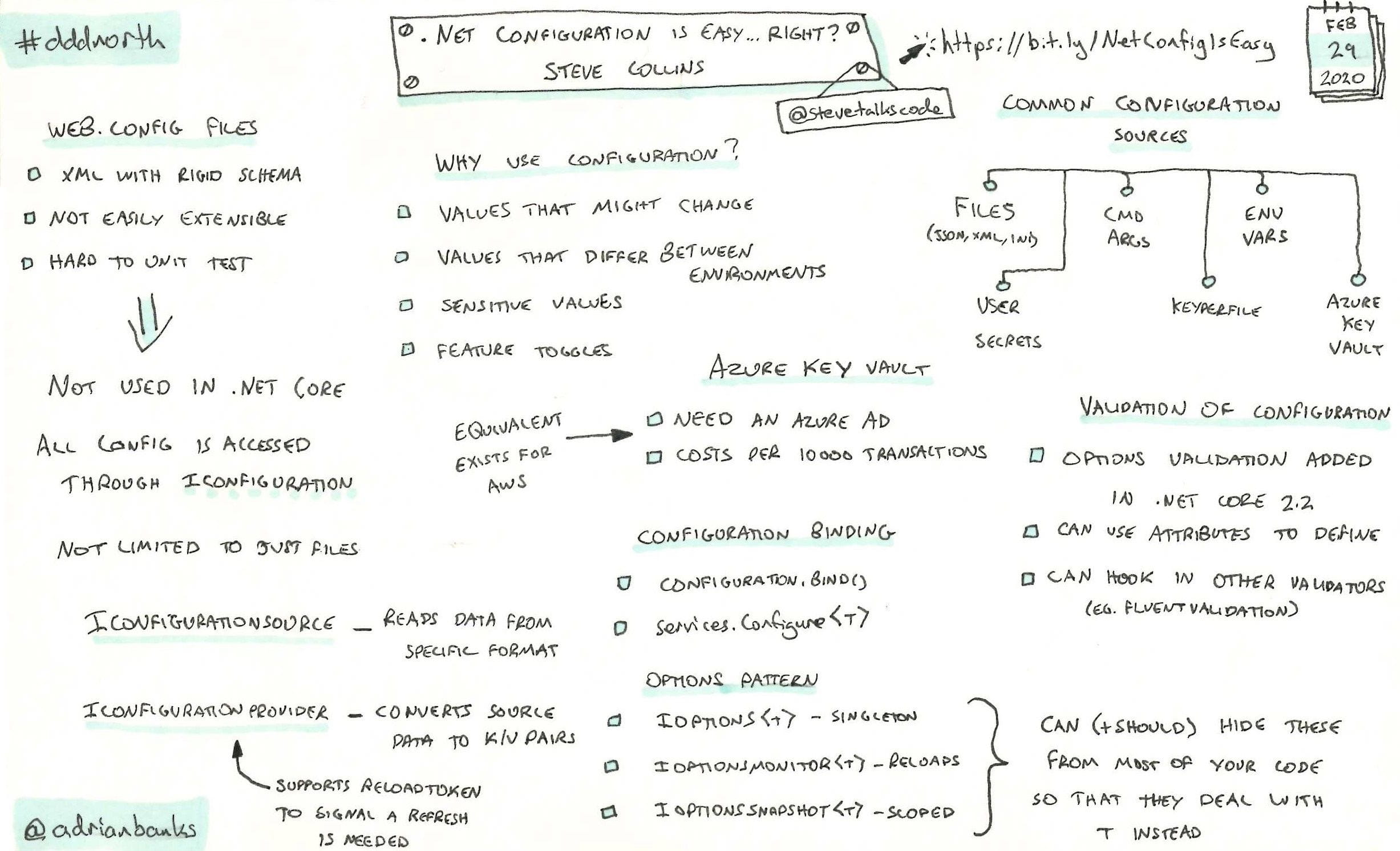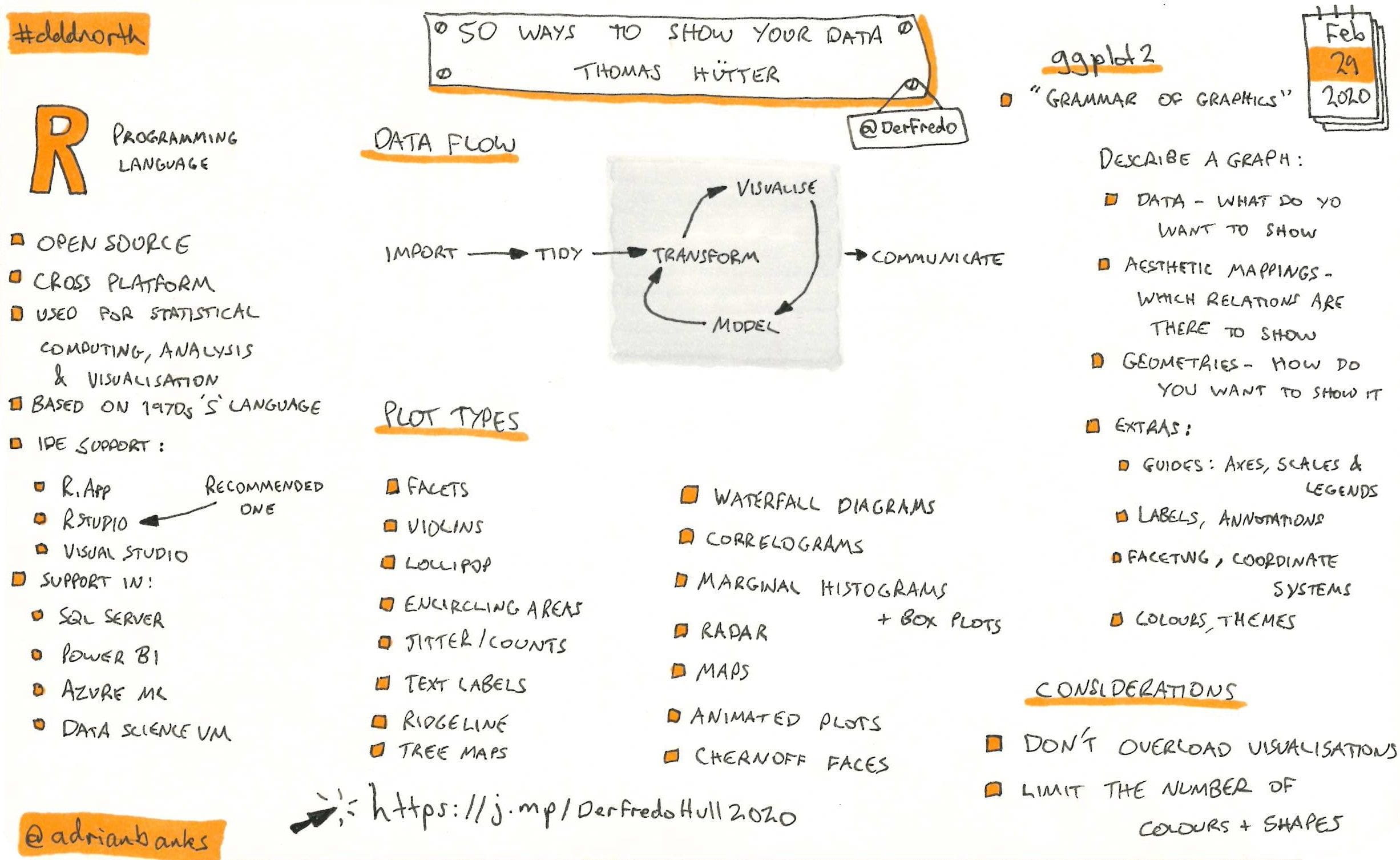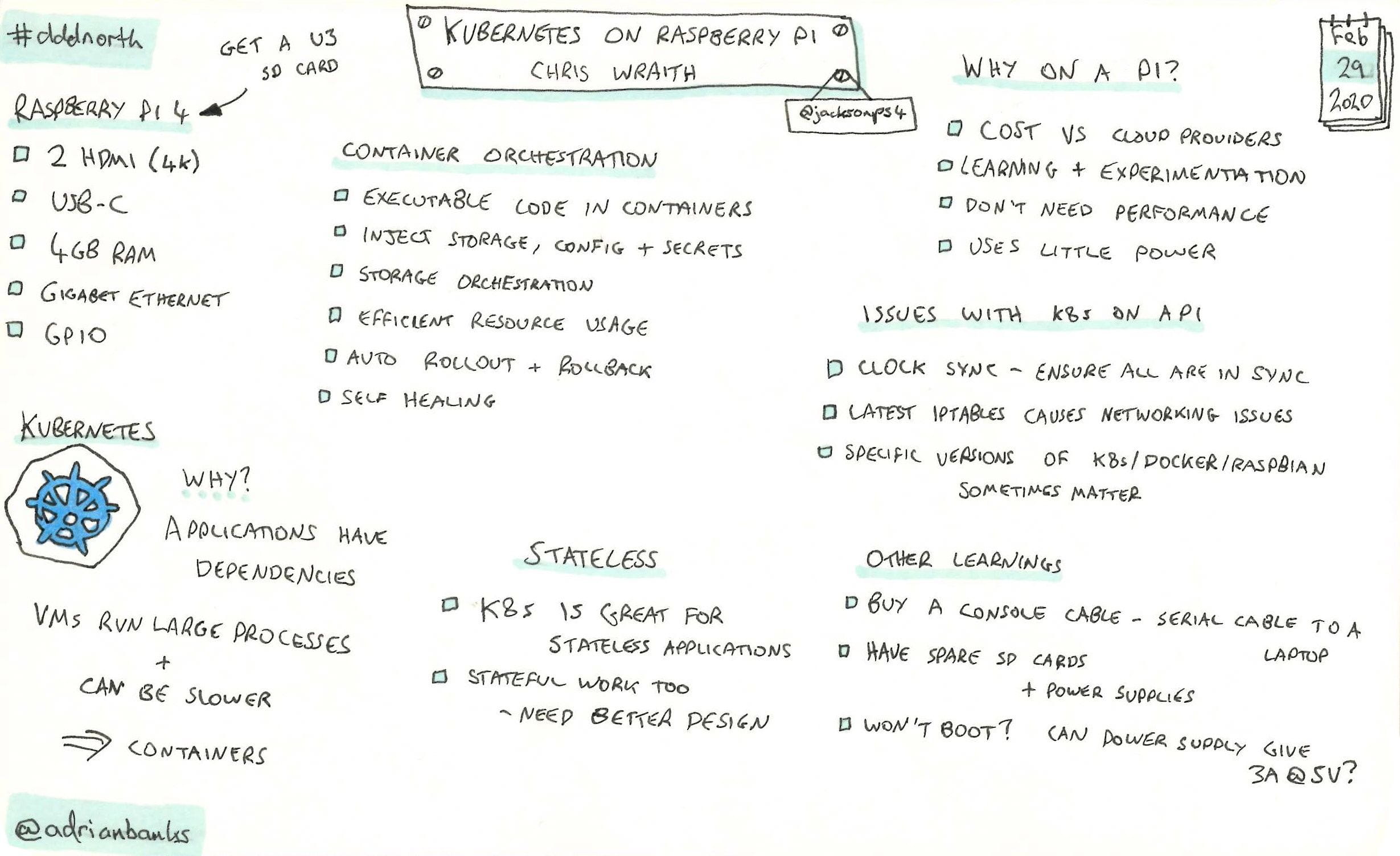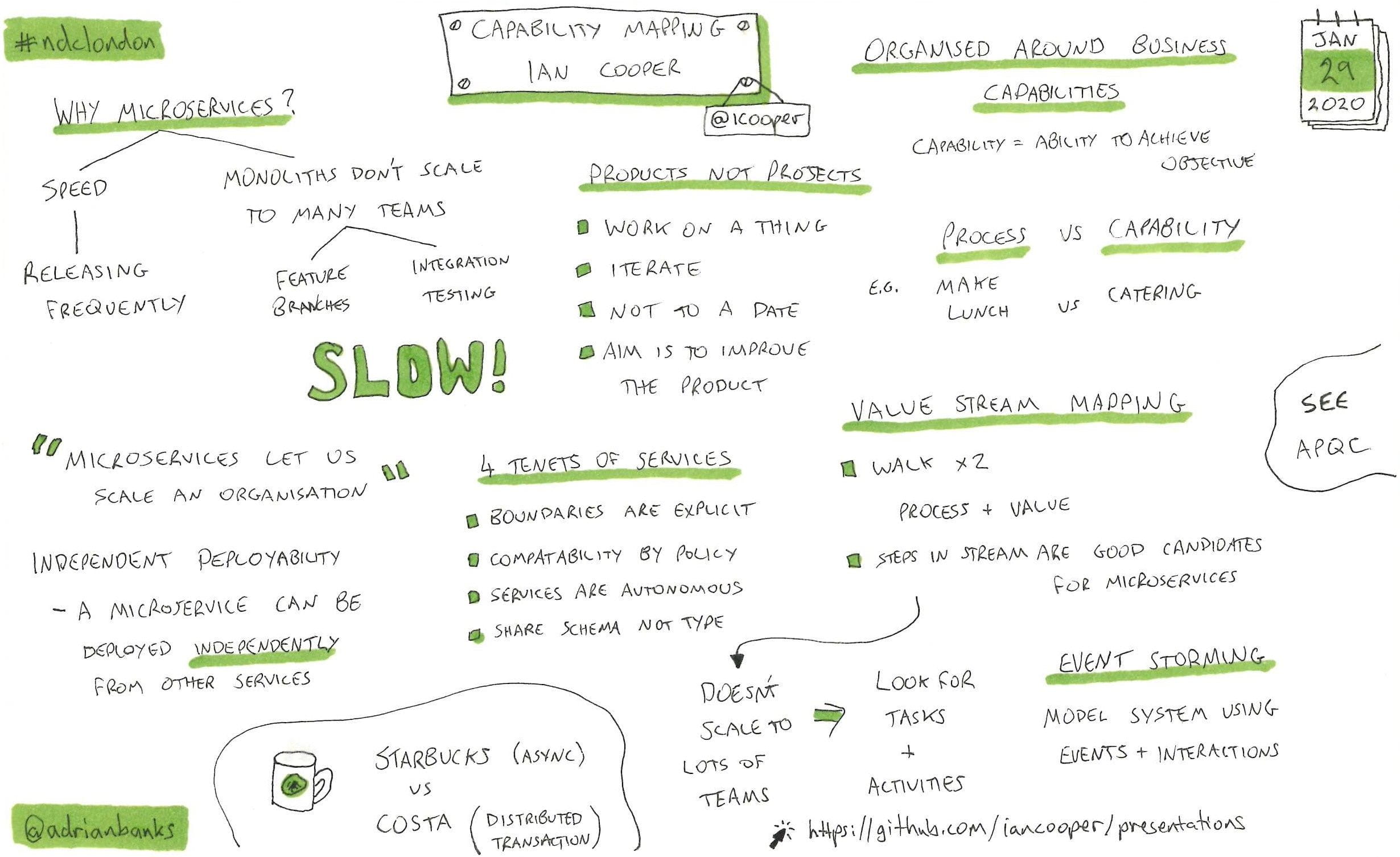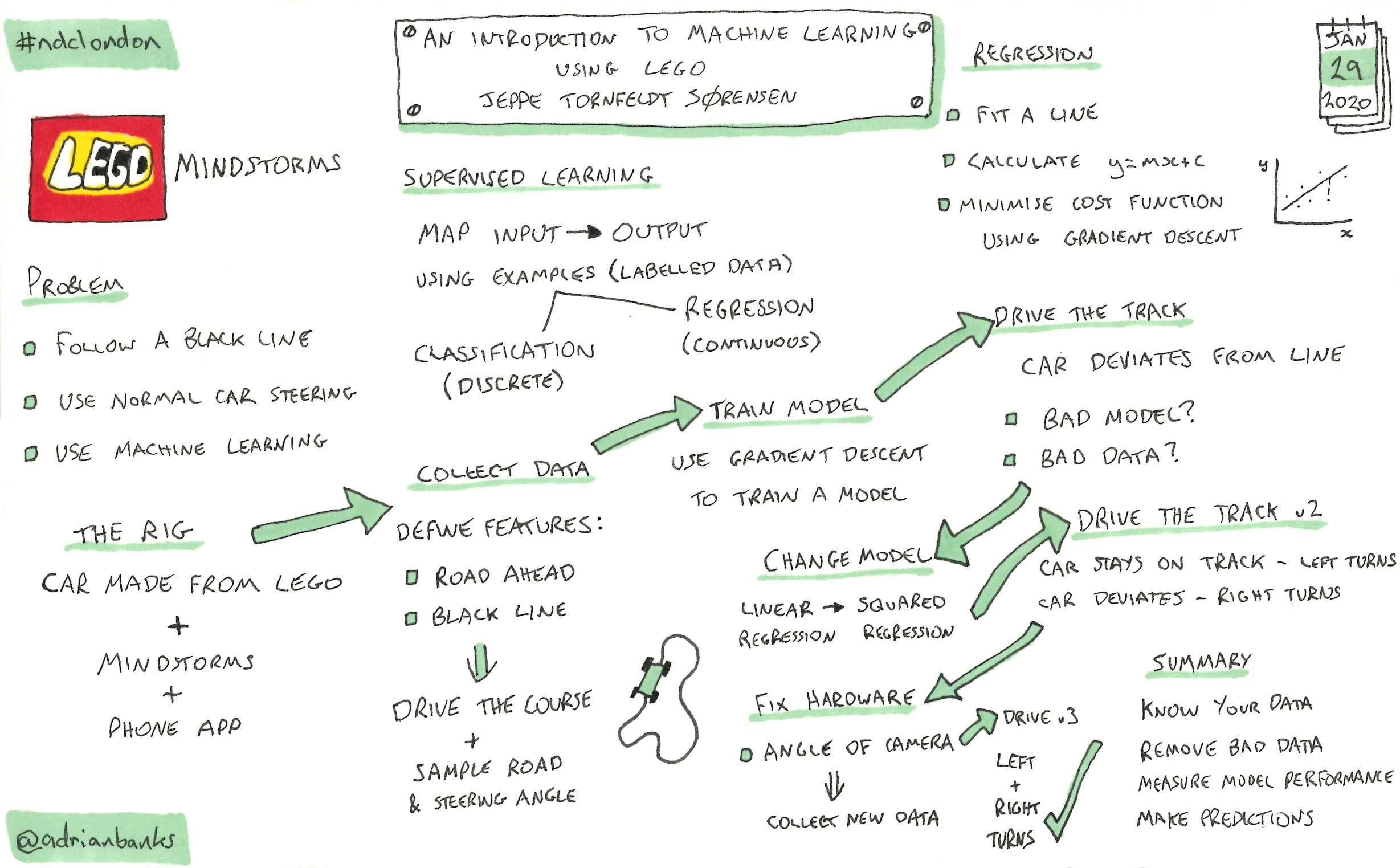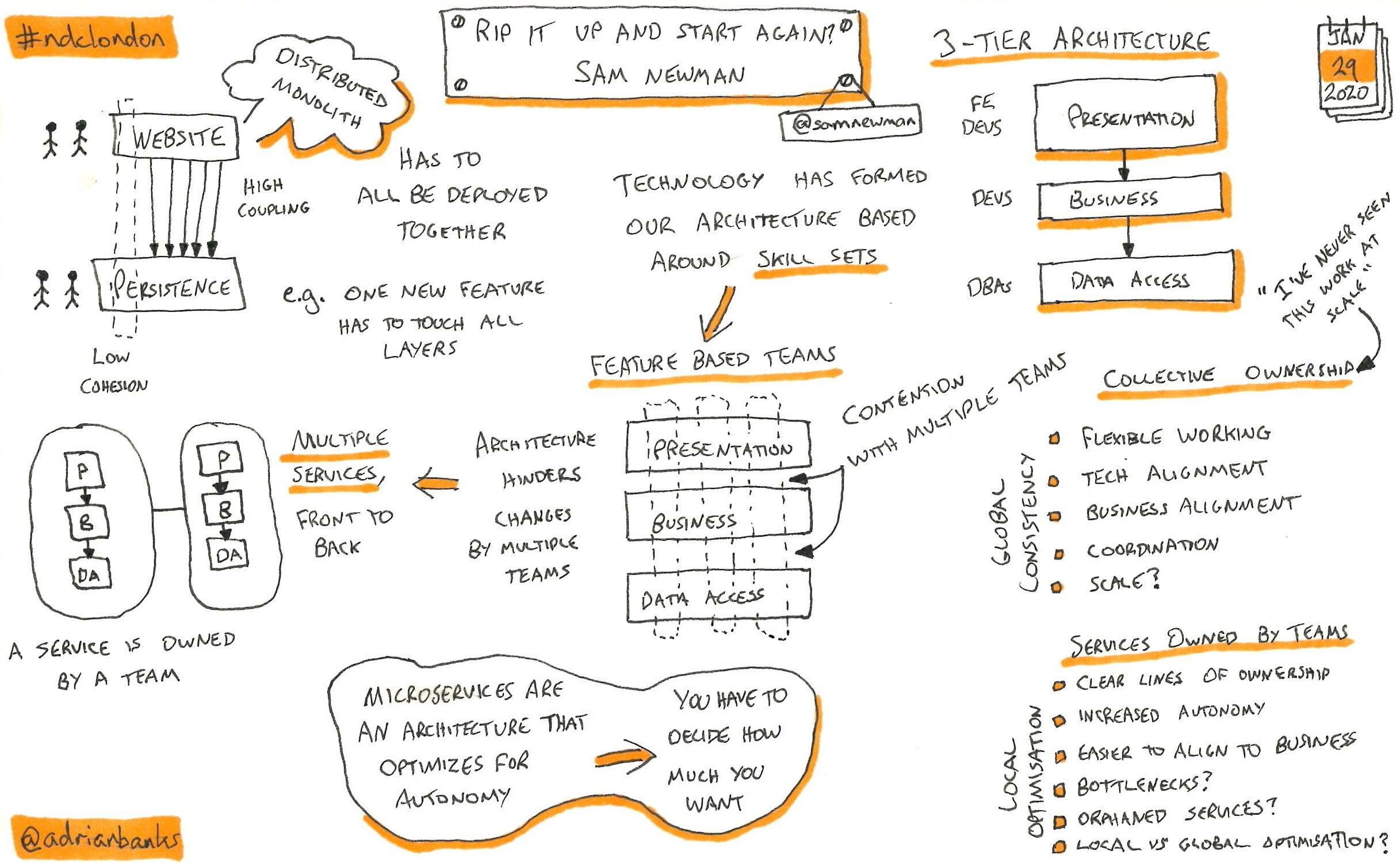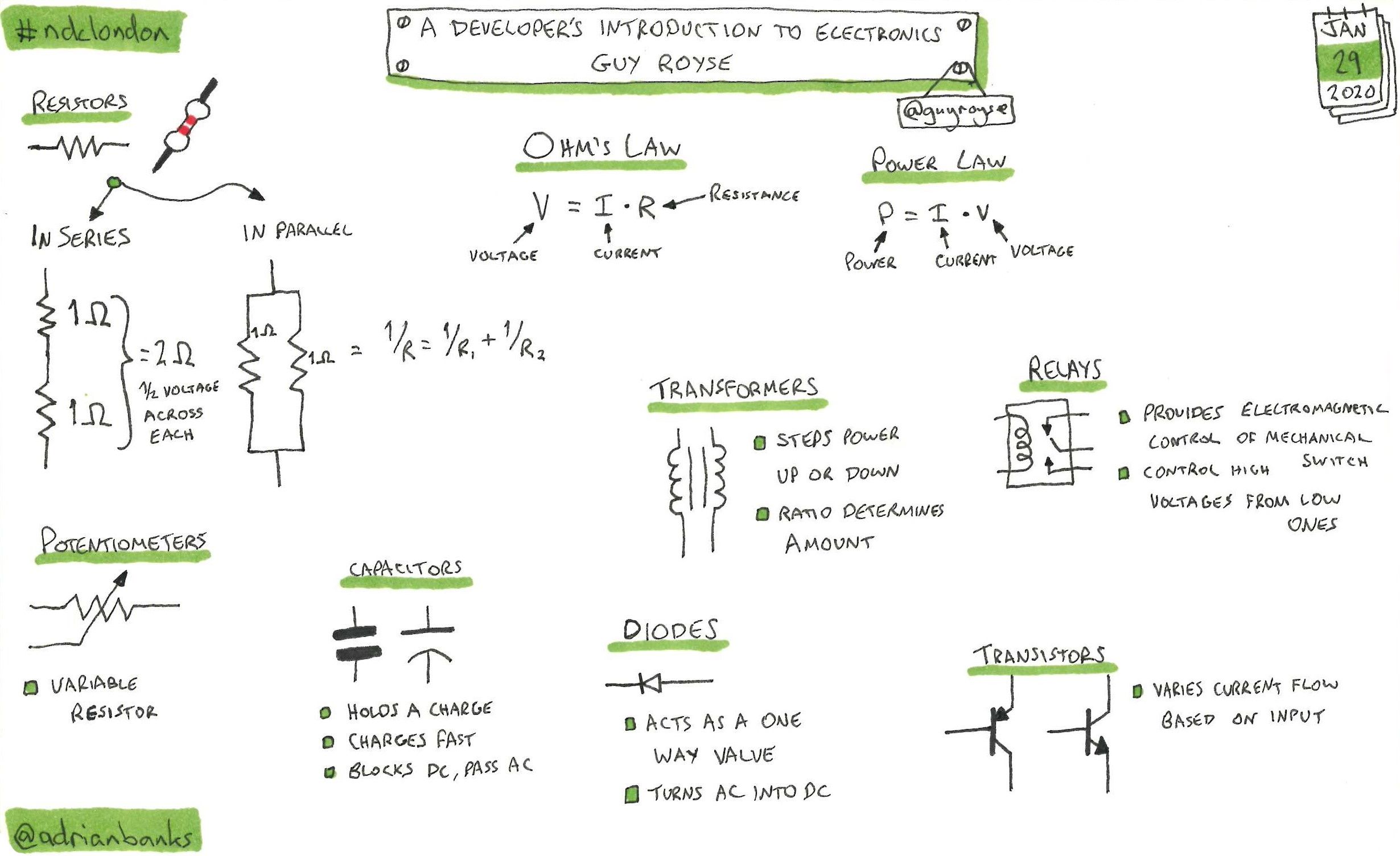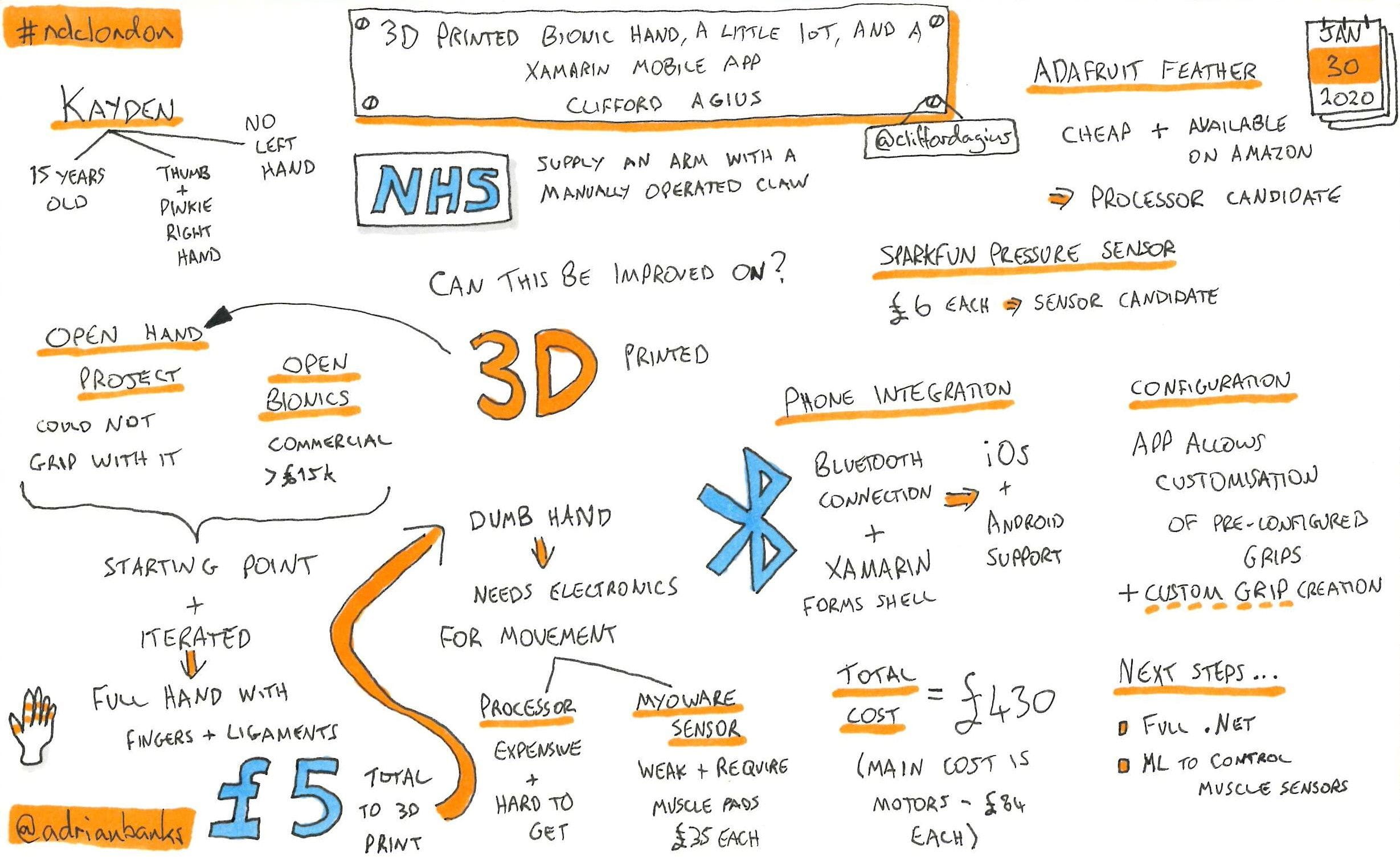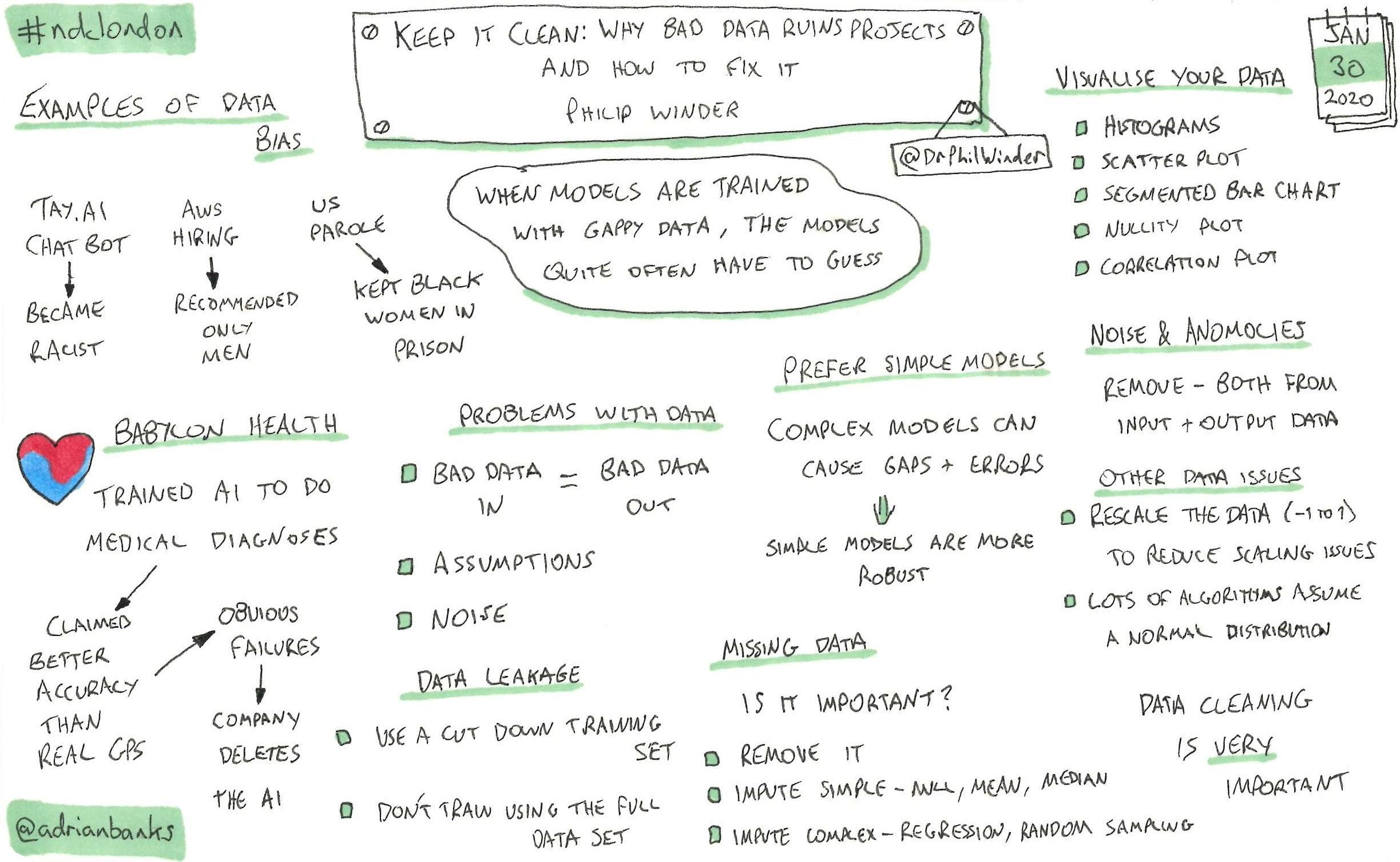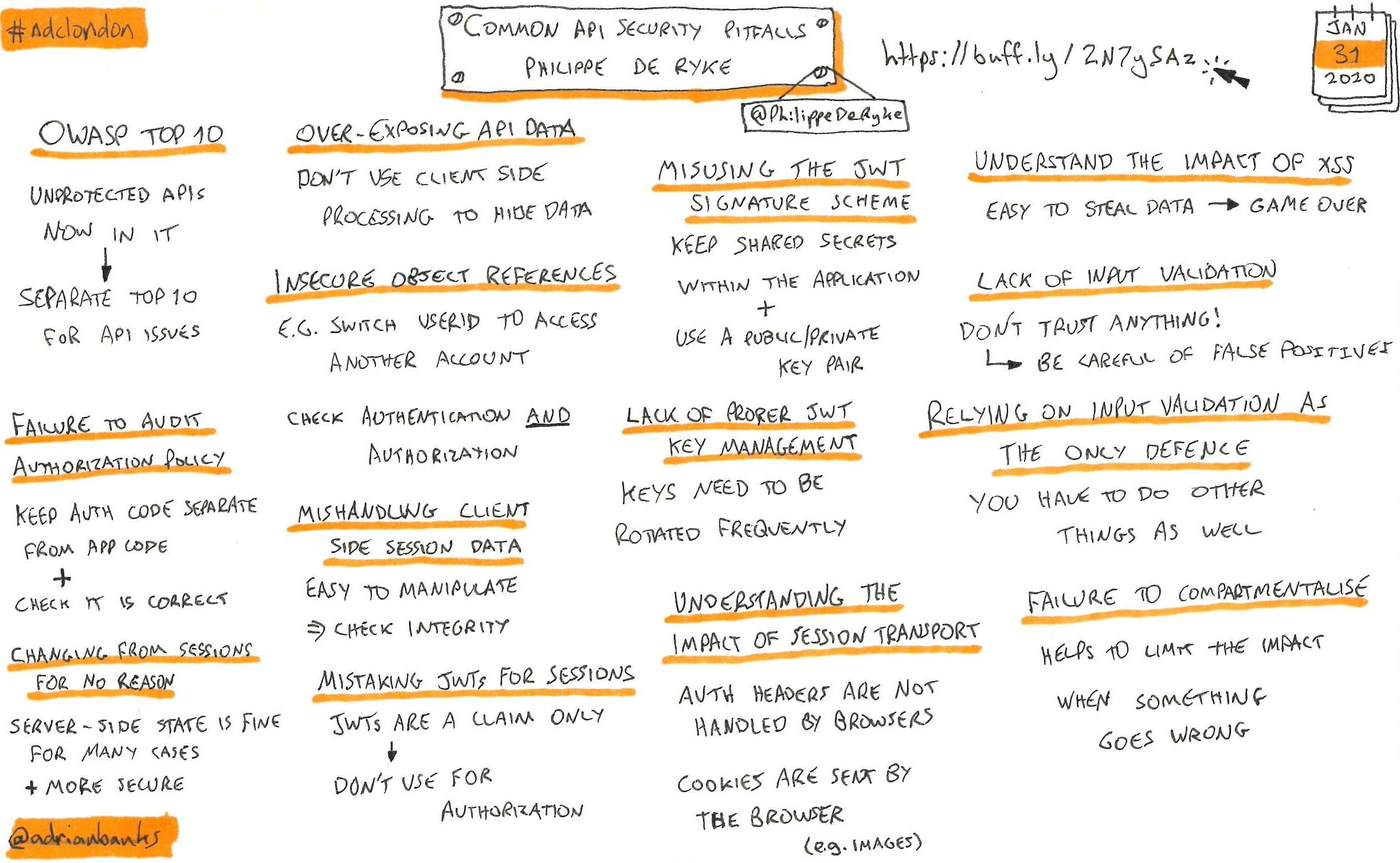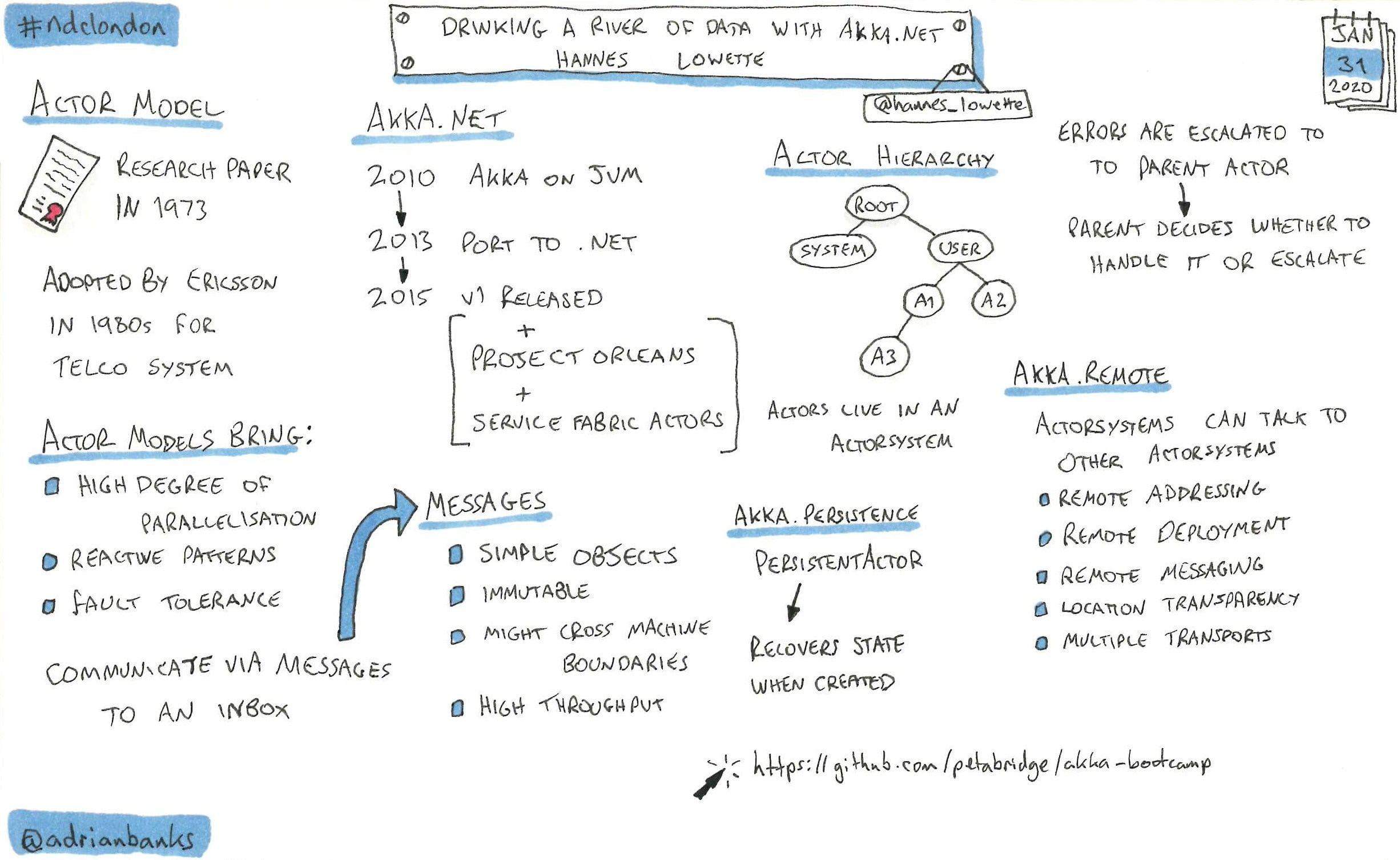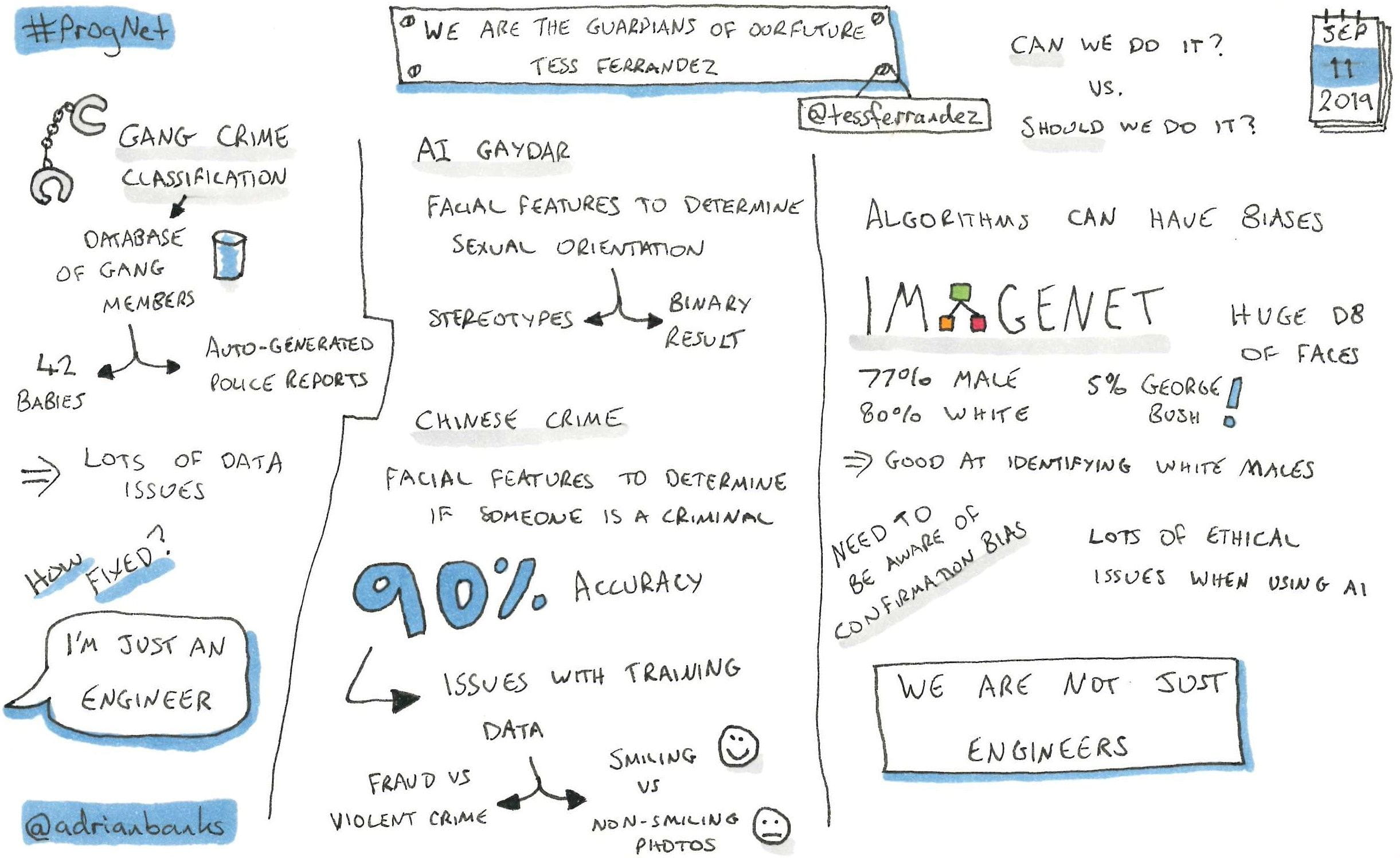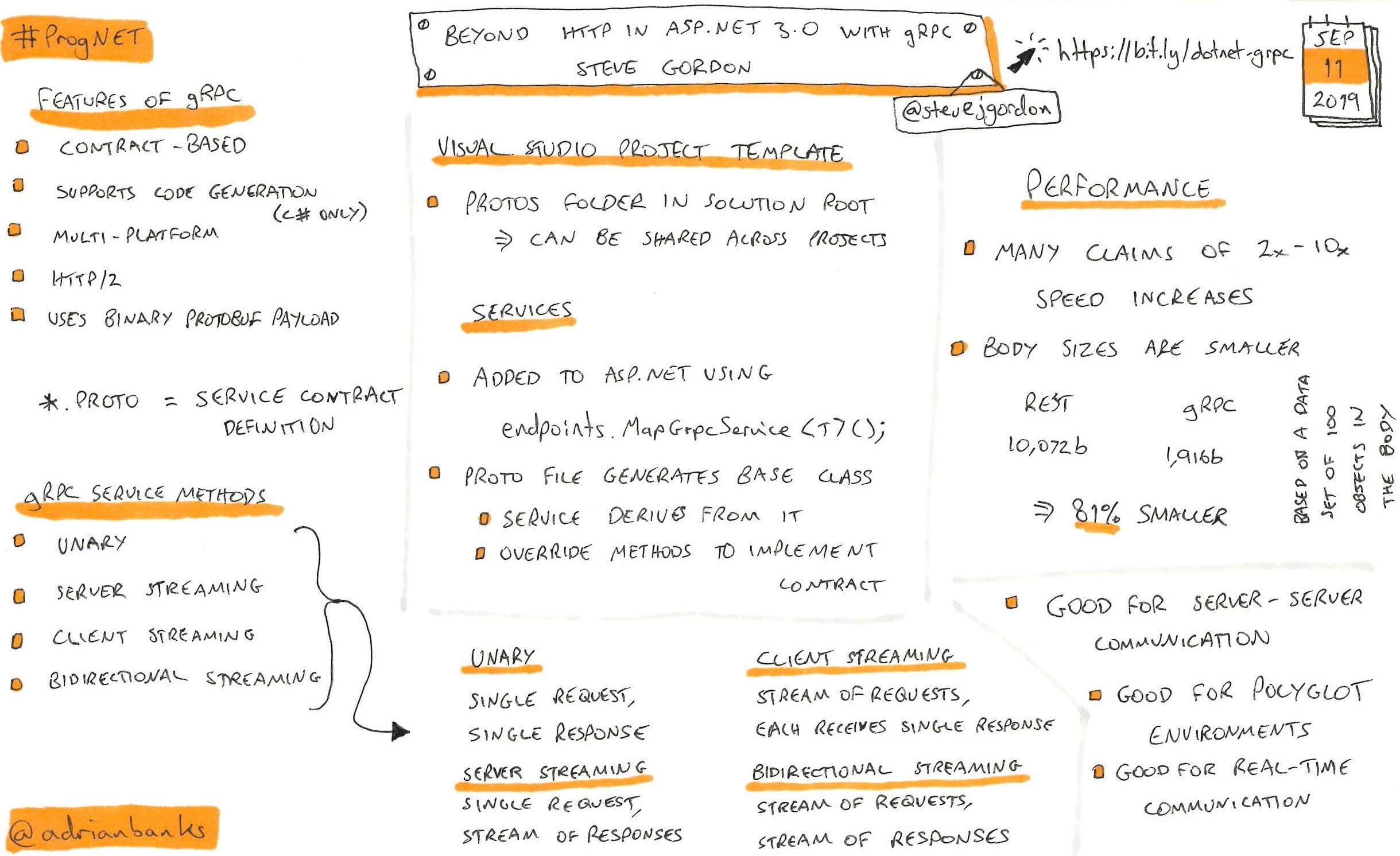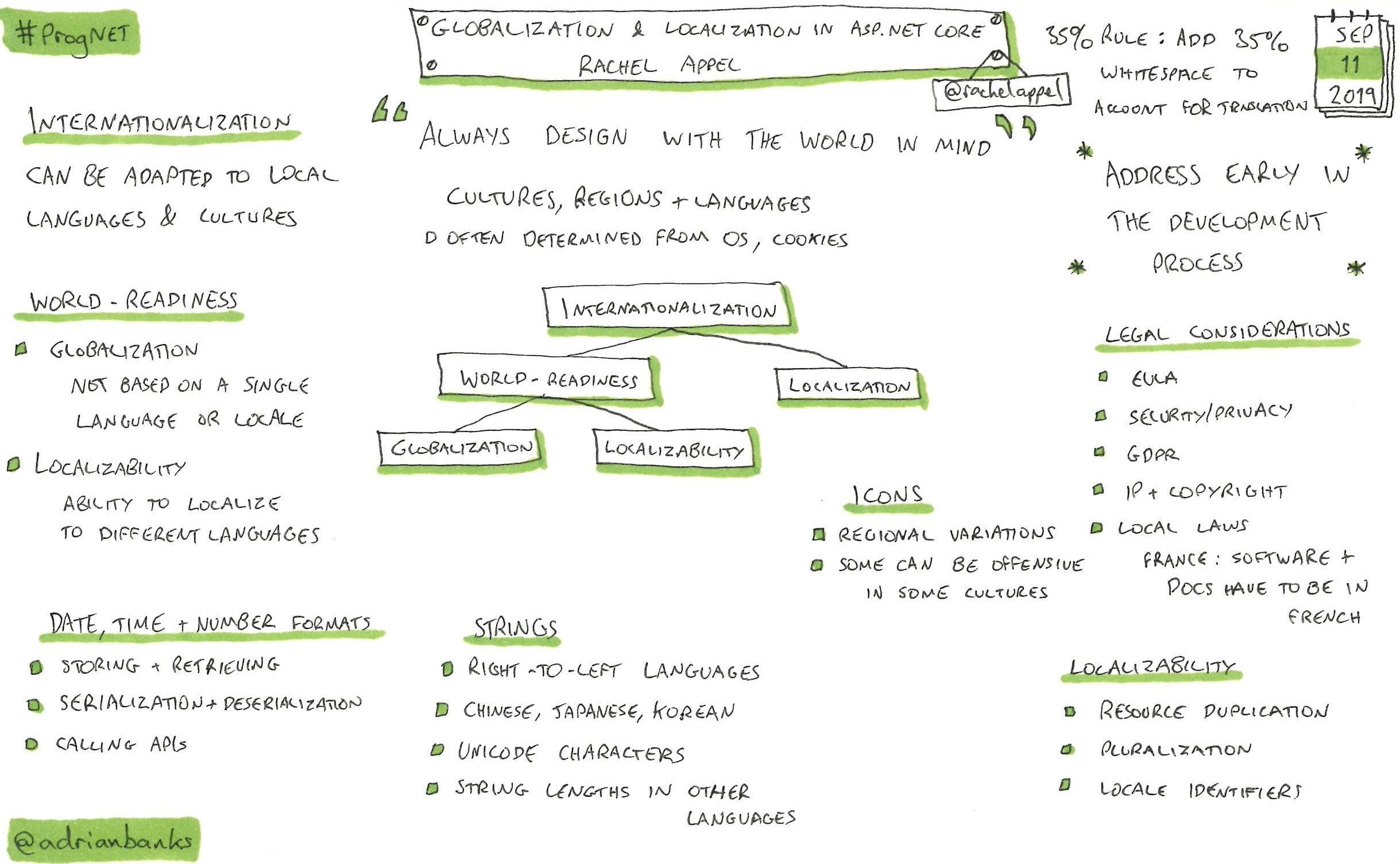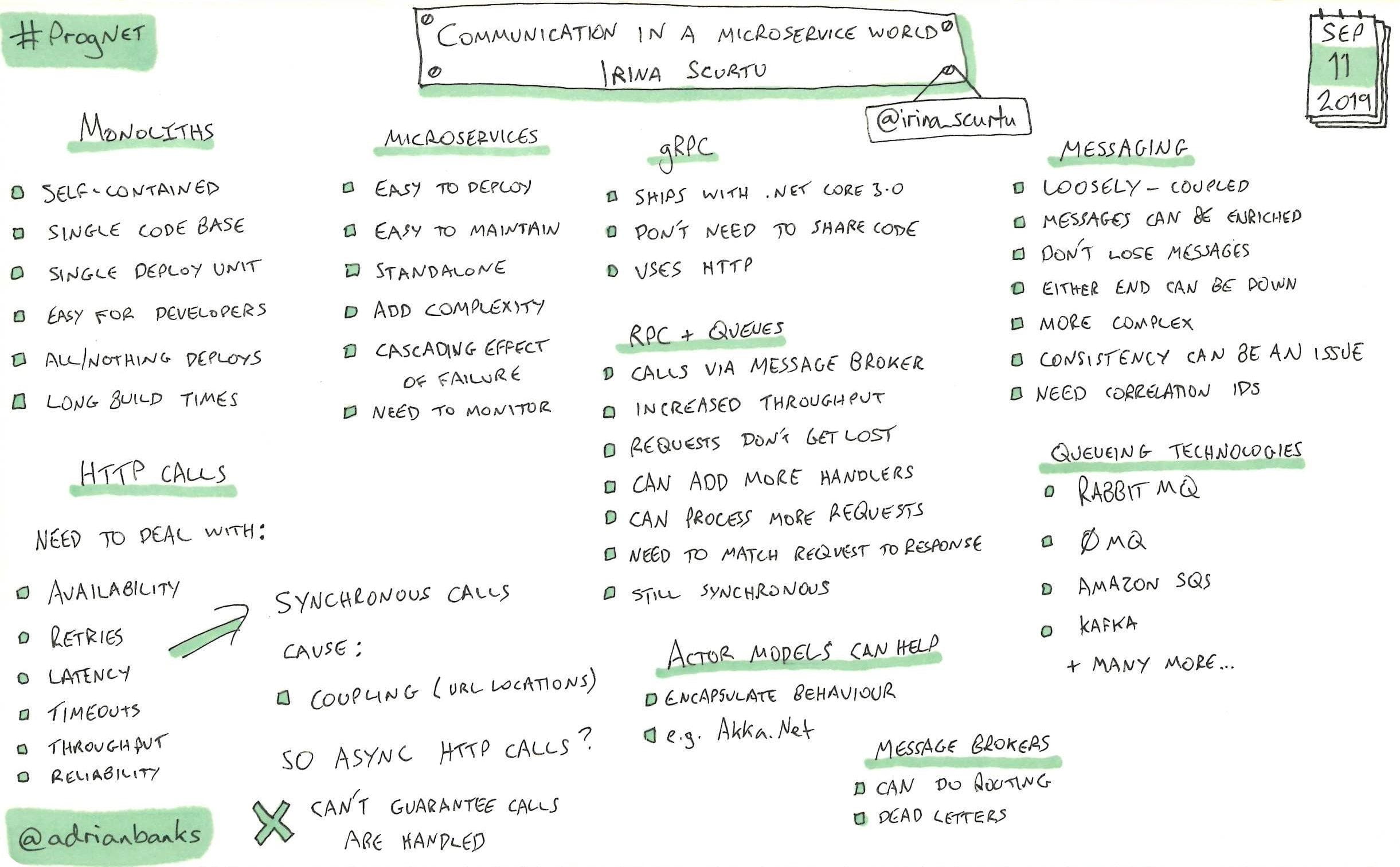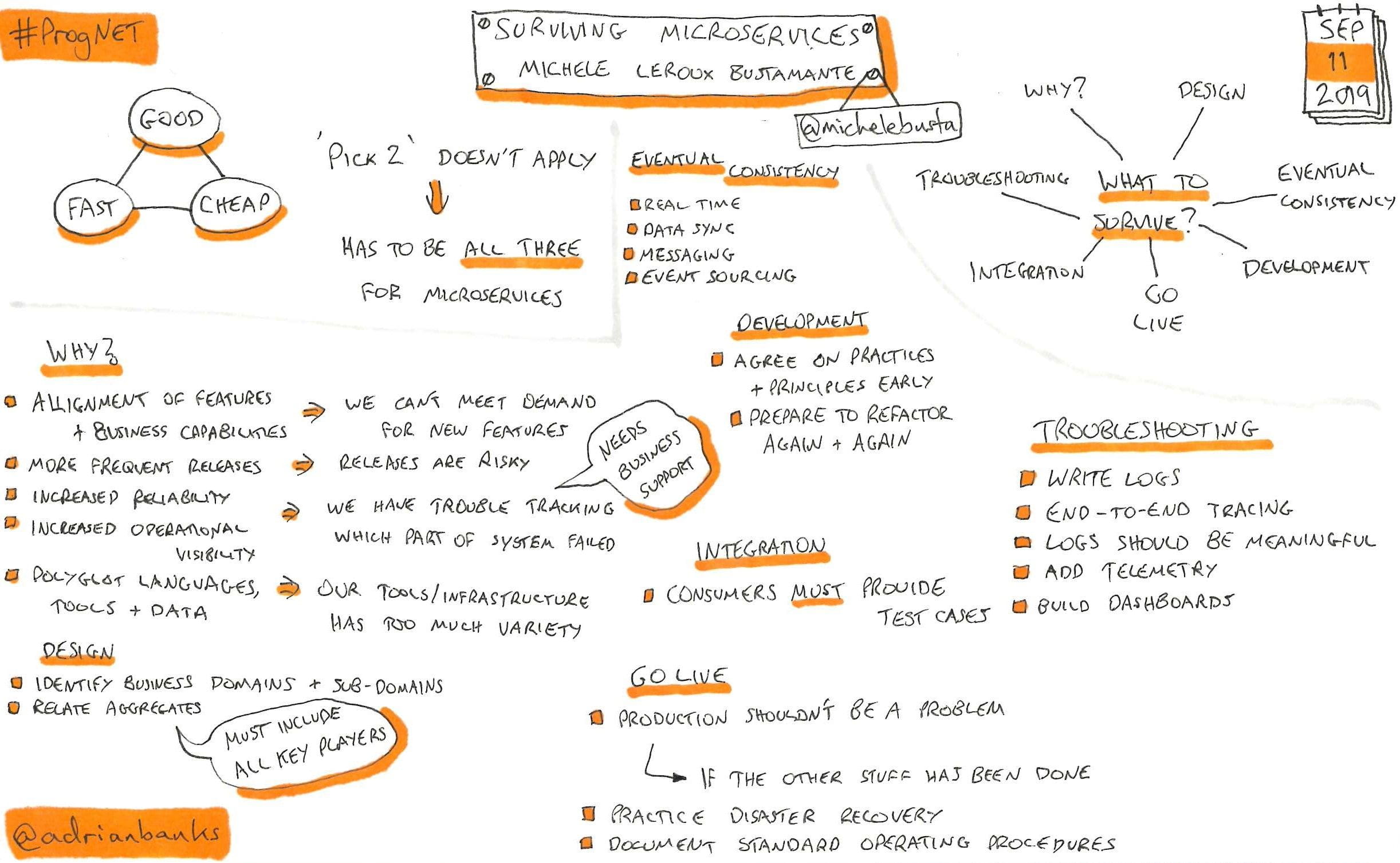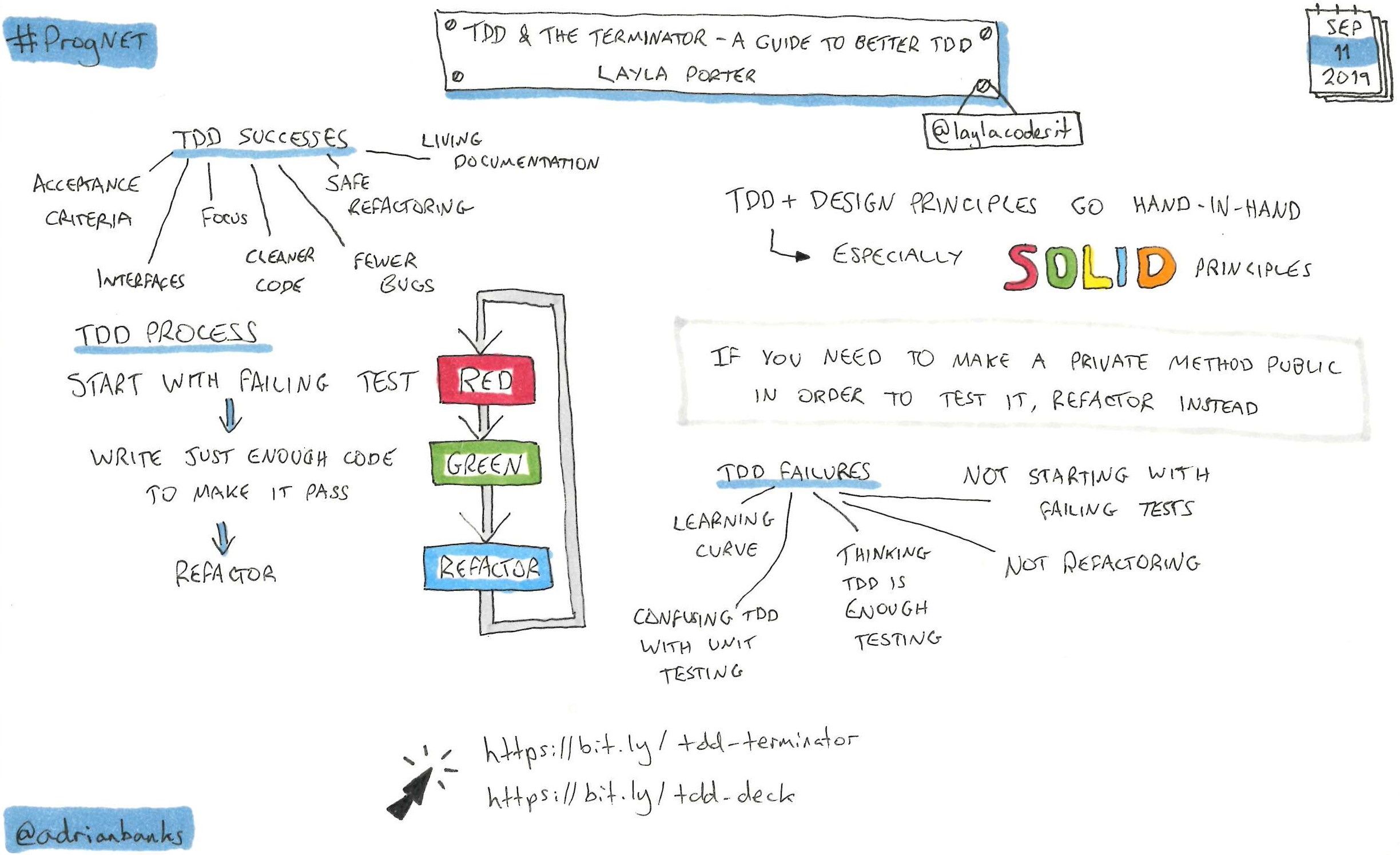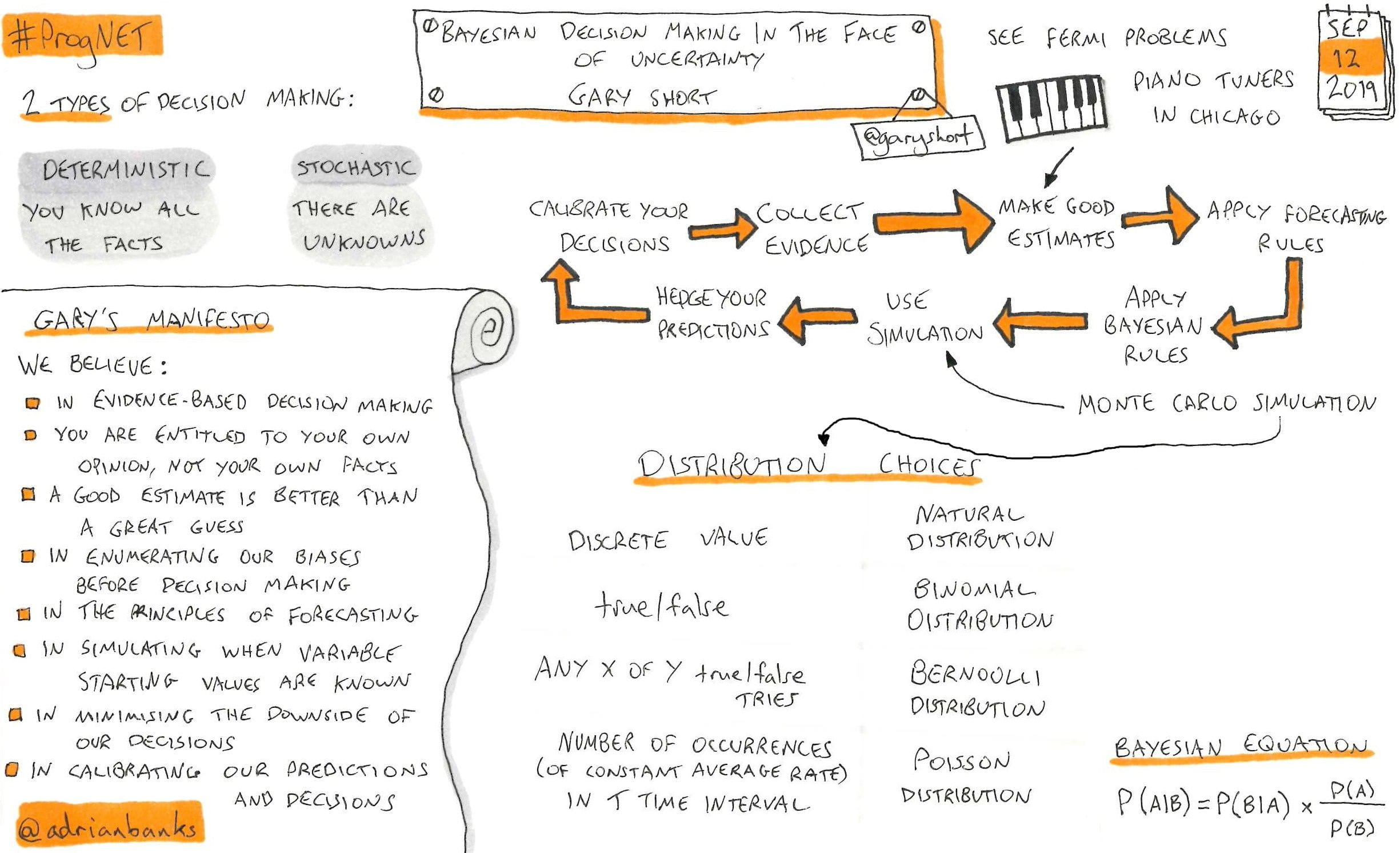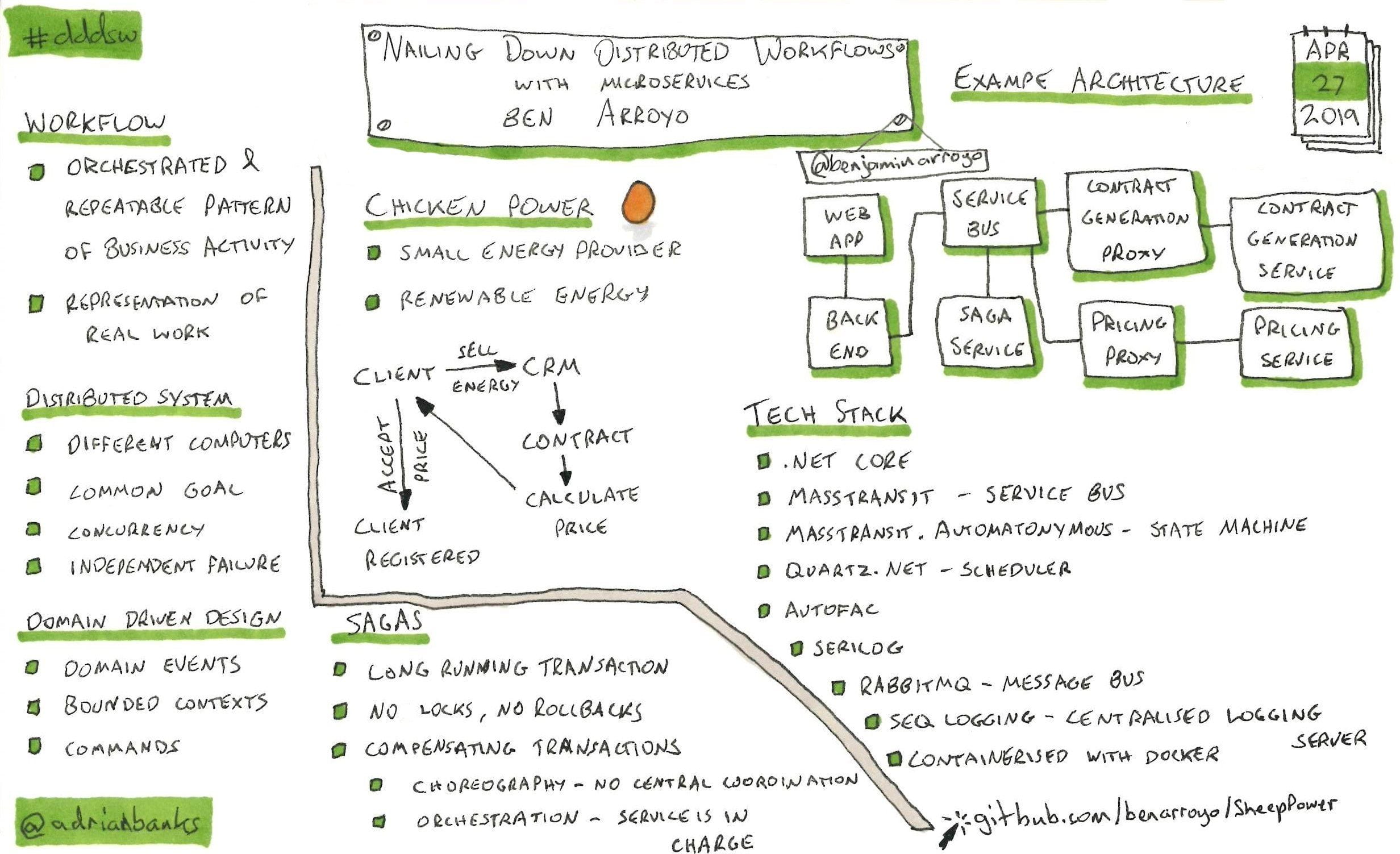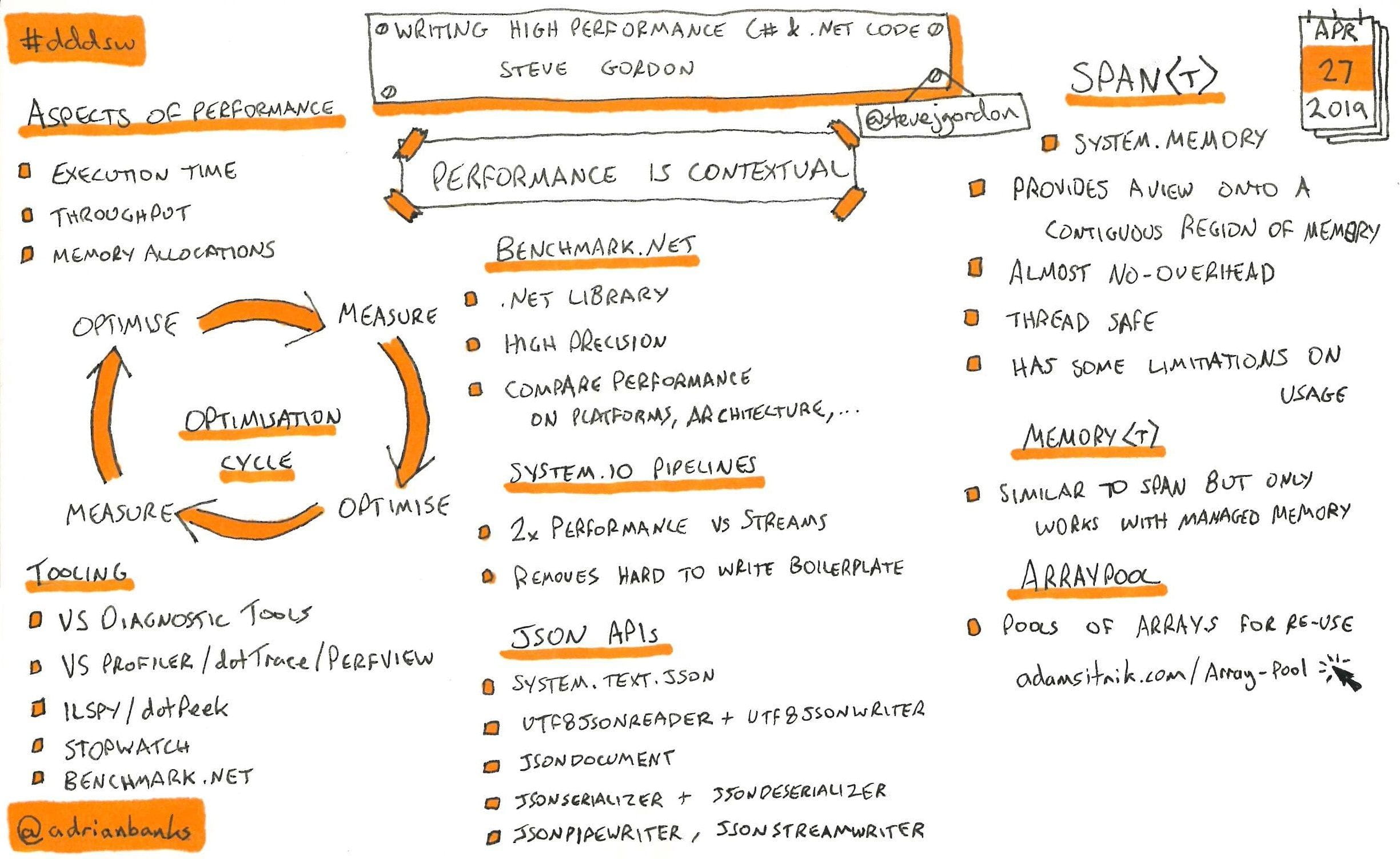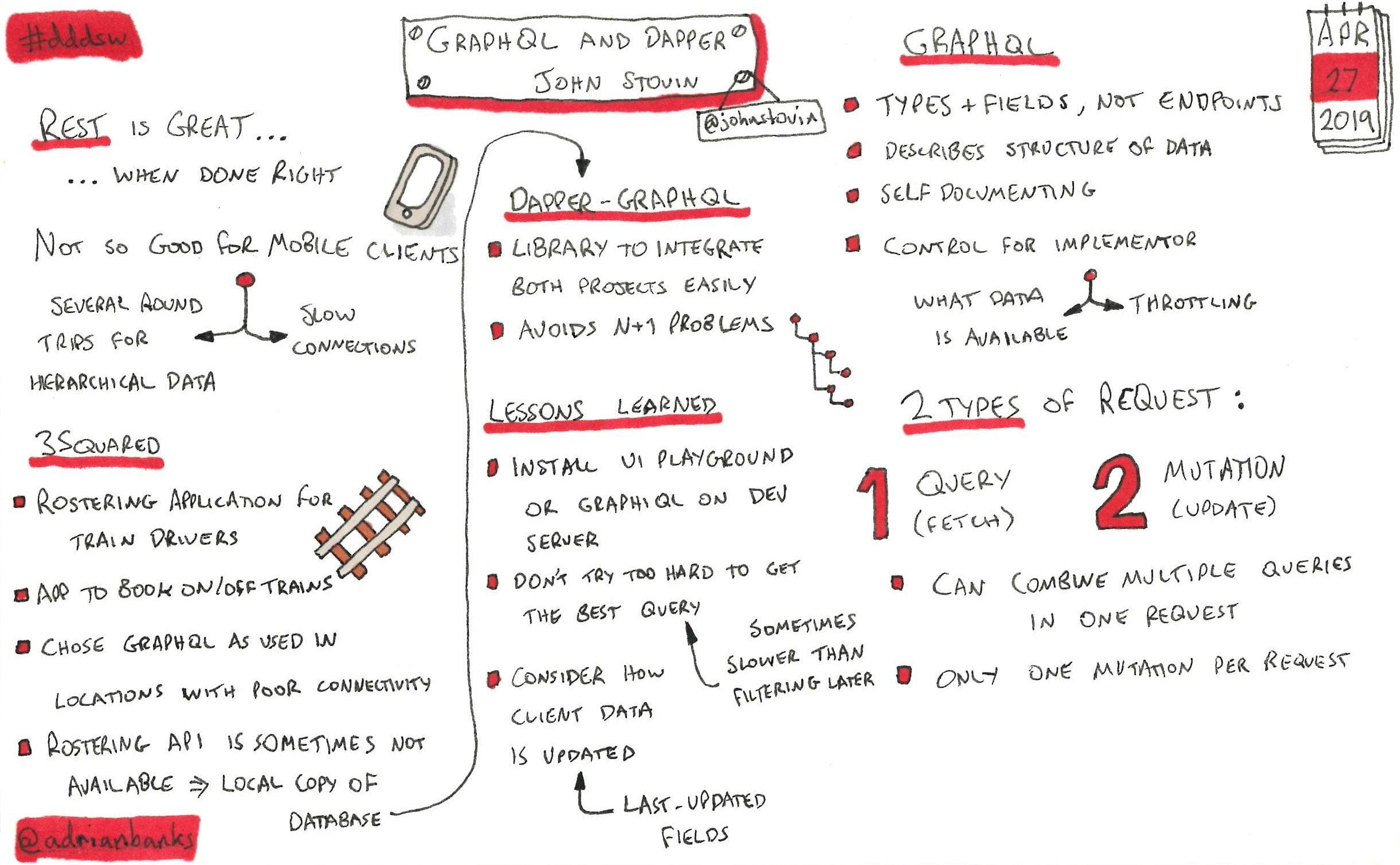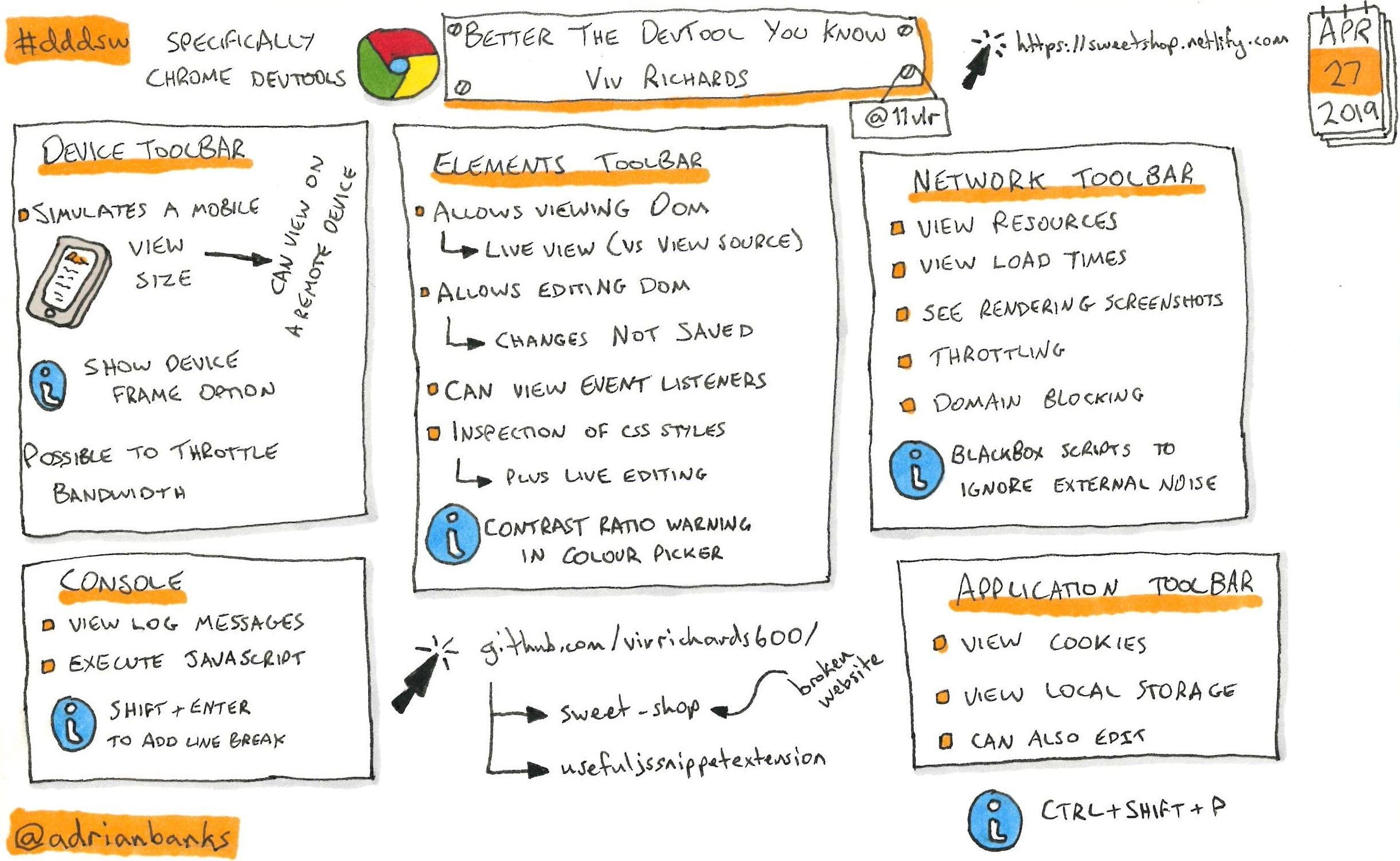DDD North 9
I’ve just got back from DDD North 9, held for second time in Hull. As is always the case with DDD events, there was a great community feel at the conference. Here are the sketchnotes I made in the talks I attended.
.Net Core 3 With A Raspberry Pi
Blazor - The Future Of Frontend Is Here
.Net Configuration Is Easy…Right?
50 Ways To Show Your Data
Kubernetes On Raspberry Pi
NDC London 2020
A few weeks ago I attended NDC London. As I’ve done in the past, I attended as part of the NDC crew. I didn’t manage to sketchnote every talk I attended, mainly because I was in the larger rooms as part of the crew schedule and was working the camera a lot of the time. Here are the sketchnotes that I did make:
Capability Mapping
Controlling Wildfires While Only Getting Singed
An Introduction To Machine Learning Using Lego
Modernising The Enterprise Desktop Application
Rip It Up And Start Again
A Developer’s Introduction To Electronics
3D Printed Bionic Hand, A Little IoT, And A Xamarin Mobile App
Keep It Clean - Why Bad Data Ruins Projects And How To Fix It
Shrink The Web
Common API Security Pitfalls
Drinking A River Of Data With Akka.Net
DDD East Midlands 2019
All The Mistakes I’ve Made Trying To Implement Microservices
This talk was cut short by a fire alarm at the venue, hence the incomplete sketchnote.
Deep Learning In The World Of Little Ponies
Whose Design Is It Anyway?
Think Like A Hacker
ProgNet 2019
Last week I attended ProgNet 2019 held at SkillsMatter in London.
This is my sixth year of attendance (last year’s notes are here), and as usual I sketchnoted the talks that I attended. Videos for all of the talks are available on the ProgNet 2019 website.
We Are The Guardians Of Our Future
Beyond HTTP In ASP.Net Core 3.0 With gRPC
Globalization And Localization In ASP.Net Core
Communication In A Microservice World
Surviving Microservices
TDD And The Terminator - A Guide To Better TDD
The Pipeline Driven Organisation
Bayesian Decision Making In The Face Of Uncertainty
DDD South West 9
DDD South West took place this last weekend in Bristol. It was a really good event as usual.
Here are the sketchnotes I did during the day.

